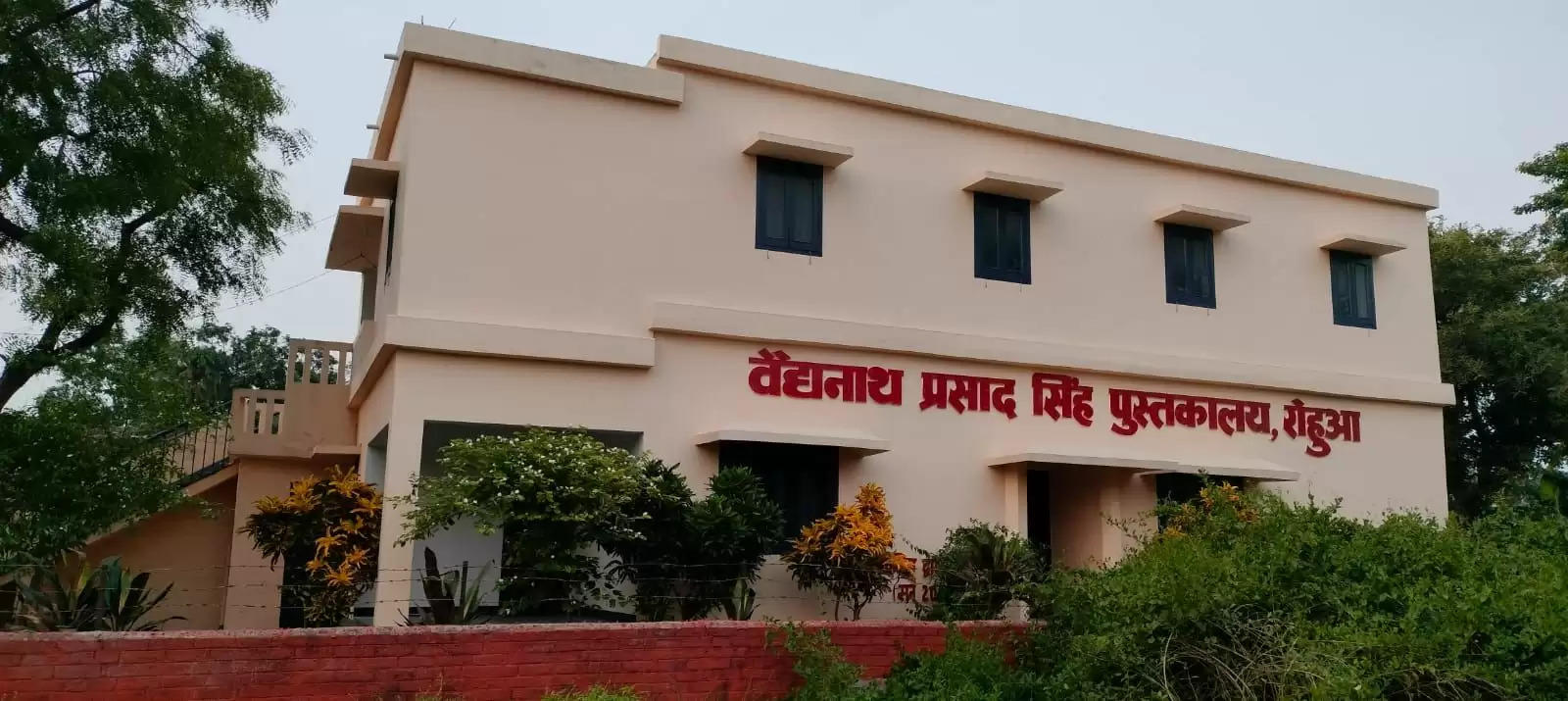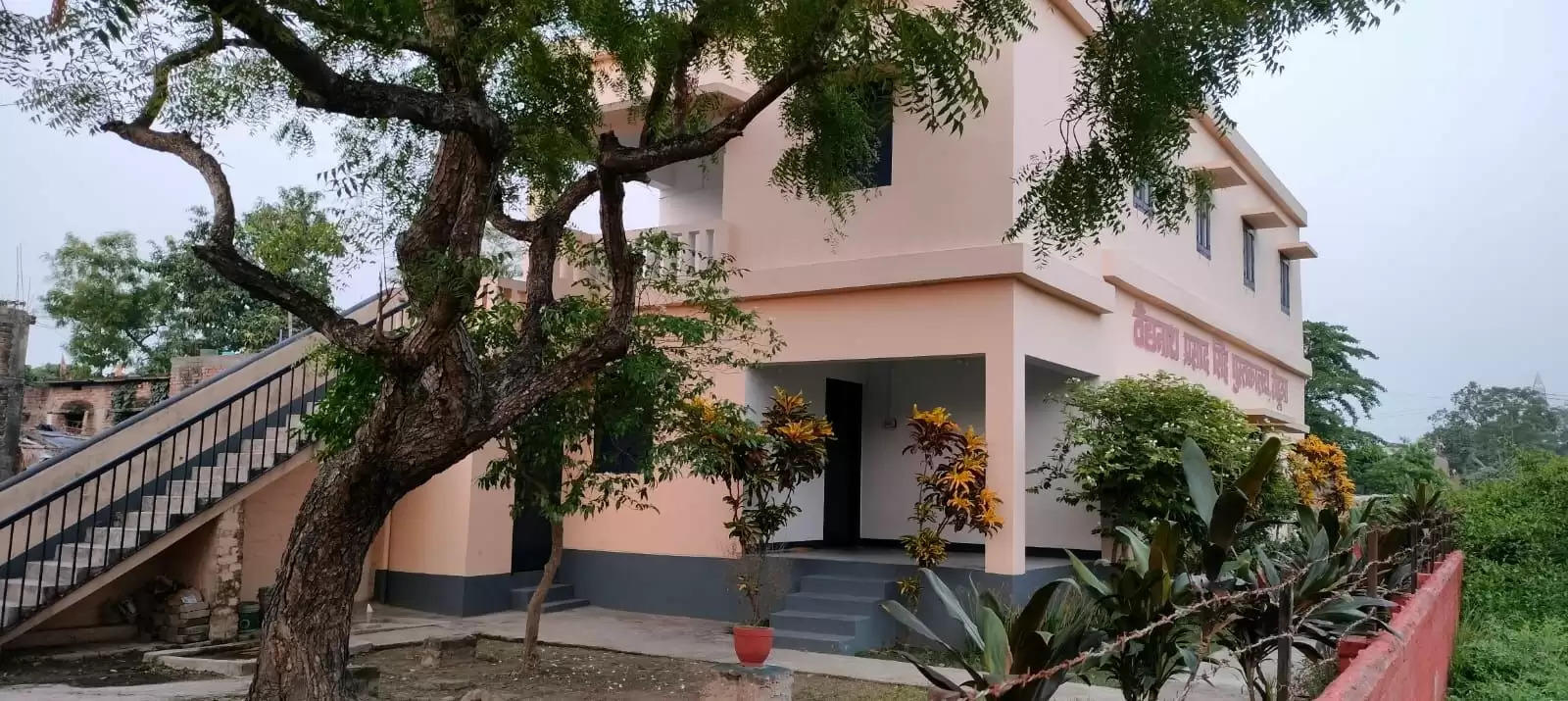Libraries Becoming a Thing of the Past

November 30, 2024 - India has been an important centre of education for centuries. Students from all over the world have come here to study. Libraries have held a special place in this tradition. Libraries have played a crucial role in advancing knowledge, science, research and philosophy. They are not just a storehouse of books; they preserve useful materials, historical facts and information for future generations, encompassing the history of both our country and the world. The intellectual, logical, and scientific capacity of a country, region or society can be assessed by the libraries that operate there, the books they hold, and the number of book lovers.
However, it is unfortunate that, in present times, the number of libraries in Bihar is not as high as it should be. At one point, Bihar had a good number of libraries, and many were quite well-known. But today, several of them are in a sad state, and many have shut down. In fact, the concept of libraries has almost disappeared in rural areas.
Not a Single Decent Library
In the State's major cities, Muzaffarpur is a prime example. In this city, interest in libraries is rapidly declining, both in urban and rural parts. The city’s Municipal Corporation Library has now become a centre for students to come to sit there and study rather than for book lovers. In such a large city, there isn’t a single decent library or reading room where book enthusiasts can go to read books of their choice, particularly those related to literature, culture, global history, and philosophy. There are small libraries like the Gandhi Library and Vibhuti Library, but they cannot be called well-established libraries. The situation in rural areas is even more concerning.

A decade ago, in the Paroo block of the district in village Chandkewari, some social workers and educated young farmers had come together to open the Kisan Library and Study Center. They went from house to house collecting books to fill the library shelves. However, this library did not last long and eventually shut down. One major reason was the lack of enthusiasm for reading among rural people, youth, and farmers. Additionally, the absence of proper maintenance and indifference toward the library’s operation also contributed to its closure.
Similarly, in the Rohua Rajaram Panchayat of the Mushari block near the city, the Vaidyanath Prasad Singh Library, which had been running for nearly two decades, has now become almost deserted. This library was opened by local resident Yoga Singh in memory of his late father, Vaidyanath Prasad Singh.
Social Mediia Responsible
Resident Ujjwal (28) says, "When we were in school, we would visit this library and read various books. Many people used to come here to read, but now the library is almost deserted. Sometimes, it's hard to find anyone here."
He attributes the decline in interest in libraries to mobile phones, which have reduced people's interest in books and libraries.
"Young people spend their entire day on social media, so even with such a nice building and many facilities, people don't come to the library," he adds.
Devendra Paswan, who lives right behind this library, says he doesn’t even know if anyone comes there to read books.
Across the State, there are many such examples of once-thriving libraries that have now shut down for various reasons.
However, in the rural market of Lalganj block in Vaishali district, which is close to Muzaffarpur, a library is still operational and has built a strong reputation in North Bihar. The library has a large collection of books, and book lovers from the surrounding areas continue to visit.
But such libraries are now few in number.
In March 2022, Sudama Prasad, chairman of the Bihar Legislative Assembly's Library Committee, released a report on the state of libraries, stating that in the 1950s, Bihar had 540 public libraries. Now, only 51 remain. According to the report, six districts — Arwal, Kaimur, Banka, Shivhar, Kishanganj, and Sheikhpura — do not have any libraries, not just in rural areas but even in cities.
The Khuda Bakhsh Oriental Public Library in Patna remains a pride of the capital and is well-known across Bihar. However, apart from the libraries in universities and colleges, the lack of public libraries in 38 districts and 434 blocks is a serious concern for book lovers, literature enthusiasts, and readers in the State.
Indifferent Attitude
Local social worker Vinay says, "In Muzaffarpur city, there are two or three libraries like the Gandhi Smriti Library and the Navyuvak Samiti Trust Library, but they cannot be called well-established libraries. Some old books are there, but they are either locked in cupboards or have been damaged by termites. No one reads these books anymore. The organisations responsible for maintaining and operating them are indifferent."
He adds that even though there is a library in the city hall, students visit it for studying. In this large city, there isn’t a single decent library or reading room.
"So what can we expect from rural areas?" he asks.
This doesn't mean that libraries shouldn't be established, but to reconnect people with reading, libraries must evolve beyond the old model and be made smart to suit the modern era. They should be connected to computers and the internet, and should host programmes like career counselling. There is a need to bring young people, who are more focused on the virtual world than the world of books, back to libraries. Additionally, a library should be established in every panchayat, and for this, panchayat representatives and intellectuals from villages must step forward.
Only then can we reconnect the new generation with this rich heritage.
Charkha Features
To join us on Facebook Click Here and Subscribe to UdaipurTimes Broadcast channels on GoogleNews | Telegram | Signal





